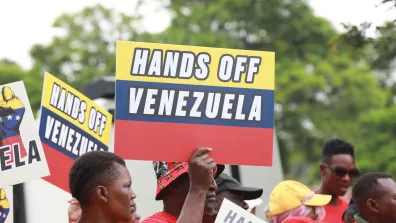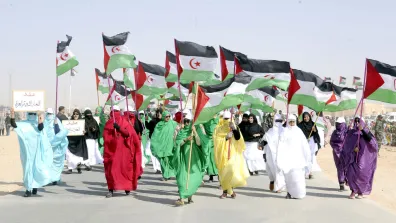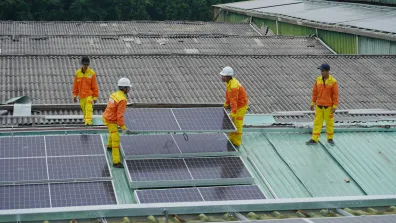“They’d kill me if I went back to Colombia”
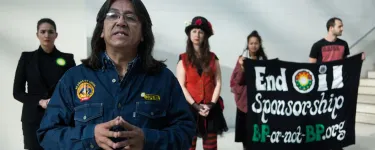
Gilberto believes his abduction was ordered and assisted by the security arm of Ocensa, a joint venture pipeline company at the time part owned and operated by BP. Seeking justice, and with support from the Oil Justice initiative - a collaboration between War on Want, UK law firm Deighton Pierce Glynn and Colombian grassroots organisation COSPACC – Gilberto took the oil giant to the High Court in London.
Colombia possesses huge natural wealth and is the second most biodiverse country in the world. However, its natural bounty has proved a curse.
Against the backdrop of civil war, big oil companies are devastating rural communities: their operations have forced people from their land, polluted the environment, and led to widespread human rights violations.
According to the Colombia Human Rights Data Analysis Group, since BP and other companies began operating in the oil rich state of Casanare, central Colombia, in the early 1990s, some 12,000 people have been murdered or disappeared.
During a recent speaker tour of the UK, organised by War on Want, Gilberto spoke of the human rights abuses in the extractive industry, and how time and again community activists and trade unionists are targeted.
“Since the oil companies came, every time a community activist or trade union member stands up to challenge human rights abuses or damage to the environment, they are threatened, attacked and in some cases murdered. I hold the multinationals responsible for this,” said Gilberto.
His lawyer, Susan Willman, of Deighton Pierce Glynn, said: “Stricter laws are needed in the UK to deter multinationals like BP from investing in conflict zones like Colombia where their presence will be associated with atrocities. At the very least, victims like Gilberto deserve access to a remedy in our courts.”
Update: High Court ends trade unionist’s case against BP
On the 19 September 2016 the High Court ordered that his case against BP and six other related oil companies, should end with no payment of costs. It was the latest stage in Gilberto’s battle against violations of human rights and destruction of the environment linked to oil extraction in Colombia.
Gilberto, in his own words…
You might think that the battle began in 2001 when Aury Sara, president of the Cartagena office of the USO (the oil workers union), and a friend of mine, was kidnapped.
At that time I was a trade union leader of the USO at the El Porvenir pumping station in Casanare. At the moment I heard of Aury’s kidnap, I happened to be in the control room of the pumping station. We discussed the situation with the other workers there and we agreed on an immediate stoppage, in the hope that this might exert pressure on the oil company and in turn the paramilitaries, and so save Aury’s life.
In the days and nights that followed, we continued strike, even when threatened by the army, the management of Ocensa and Ecopetrol and the paramilitaries, and we managed to halt the flow of oil across Colombia. Sadly, despite these acts of solidarity, Aury’s dead body was found showing signs of torture.
After our strike, threats against me increased and one day on my way home from work I myself was kidnapped and tortured by paramilitaries who seemed to have been assisted by OCENSA, in which BP held shares at that time.
I was not of course kidnapped by BP itself, but I consider the company and its successors to be responsible for what happened to me, and to thousands of other trade unionists, environmentalists and community leaders who challenged their activities in Casanare.
The murders began in the 1990s at a time when BP was paying money directly to the Colombian army. At that time, the army's links with paramilitaries were well-known. And yet payments by BP/Equion continued, though later to the Ministry of Defence instead of directly to the army. And the murders continued until as recently as November 2015, when Daniel Abril Fuentes, farmer, community leader and environmental advocate, was murdered in Casanare.
You could say that I was lucky because thanks to the support of the USO, which organized a strike against the oil company for 24 days, and the mobilization of the national and international community, I was released alive. But I and my family were forced into exile from our beloved Colombia. Although in many ways the experience destroyed my life, I am comforted by the solidarity and support which I have received in the past 15 years, starting with trade unionists and activists like the Colombia Solidarity Group, among others.
In 2011, three of the paramilitaries involved in my kidnapping and torture were formally charged. During the trial, they gave evidence about the role of the oil companies, which they said had financed the kidnapping. When convicting and sentence them to imprisonment, the judge also acknowledged the role of multinationals in these events.
This unexpected development led me, with the help of Colombian lawyer and trade union activist Francisco Ramirez, to seek justice in the courts outside of Colombia, first in the US and then in the UK. A trade union friend, Miguel Puerto, who was also in exile, introduced me to Sue Willman of Deighton Pierce Glynn (DPG) solicitors. In 2012,
I filed a case in the UK against BP and 6 other oil companies registered in the UK, as well as OCENSA, with the help of Sue Willman, her colleague Dan Carey, and experienced barristers Richard Hermer QC (Matrix Chambers) and Claire McGregor, later assisted by David Hart QC, also of 1 Crown Office Row).
Despite the tireless work of the team of lawyers and researchers in the UK and Colombia, we faced overwhelming obstacles. First I faced the inequality of the tiny resources which I and a small law firm had against a huge wealthy multinational and 2 corporate law firms. Second, the law in the UK (and in the US) allows multinationals to avoid justice by relying on local companies, state forces and even illegally armed groups to facilitate their activities, with no legal liability.
Until the law is reformed, and until the US and the UK take responsibility for the intended or unintended consequences of oil extraction by companies like BP, people like me from communities like mine will not be able to access justice.
This is not the end of the story. Through the legal work of the past 4 years in the UK and Colombia, we have achieved many things.
We have put a spotlight on BP and Equion’s actions in Casanare through media attention.
In 2015, I toured the UK to start the Oil justice project with War on Want and Deighton Pierce Glynn, which have linked up activists around the world to collaborate on these issues, from BP or not to BP in London to campaigners in Mexico. And for the people of Casanare, the NGO COSPACC has started the popular School of Investigation and the Environment, in memory of Daniel Abril Fuentes.
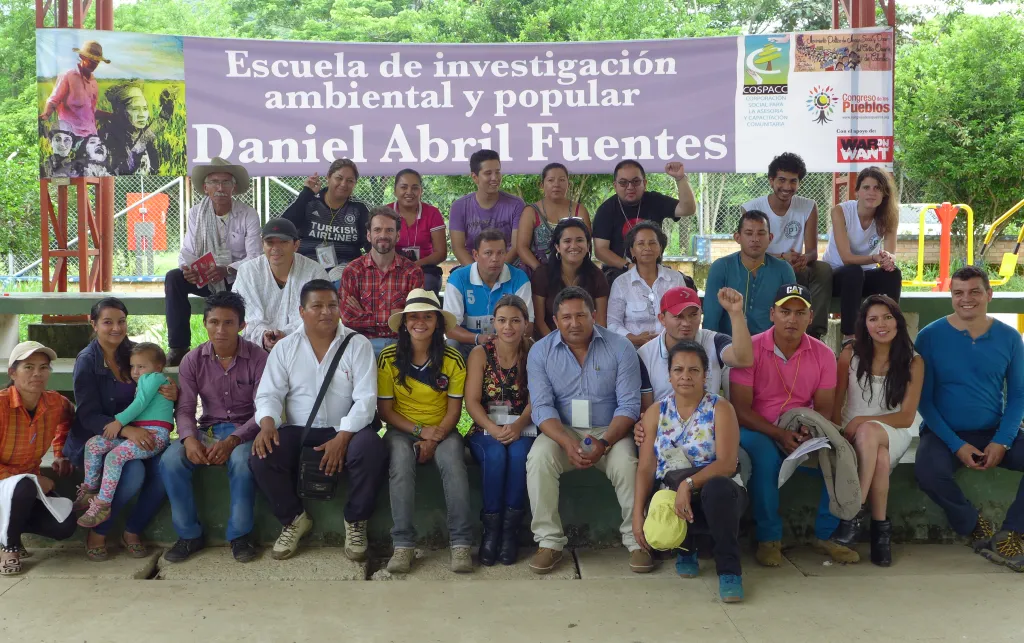
Of course there have been changes in Colombia with some small steps toward the peace process and reconciliation. This has opened the door for me to return to Colombia, however risky that may be, to continue my personal and political struggle. I'm determined to share my knowledge and experience with a new generation of trade unionists and activists with the support of my union USO.
So although I have ended my international legal case in the UK with the deepest regret and sorrow, we will continue our search for justice, knocking on doors and holding on to hope. I hope this is the start of a new era. And I have absolutely no doubt that through international solidarity, we will ultimately hold multinational corporations accountable for the destruction they have caused in Colombia and across the globe.
